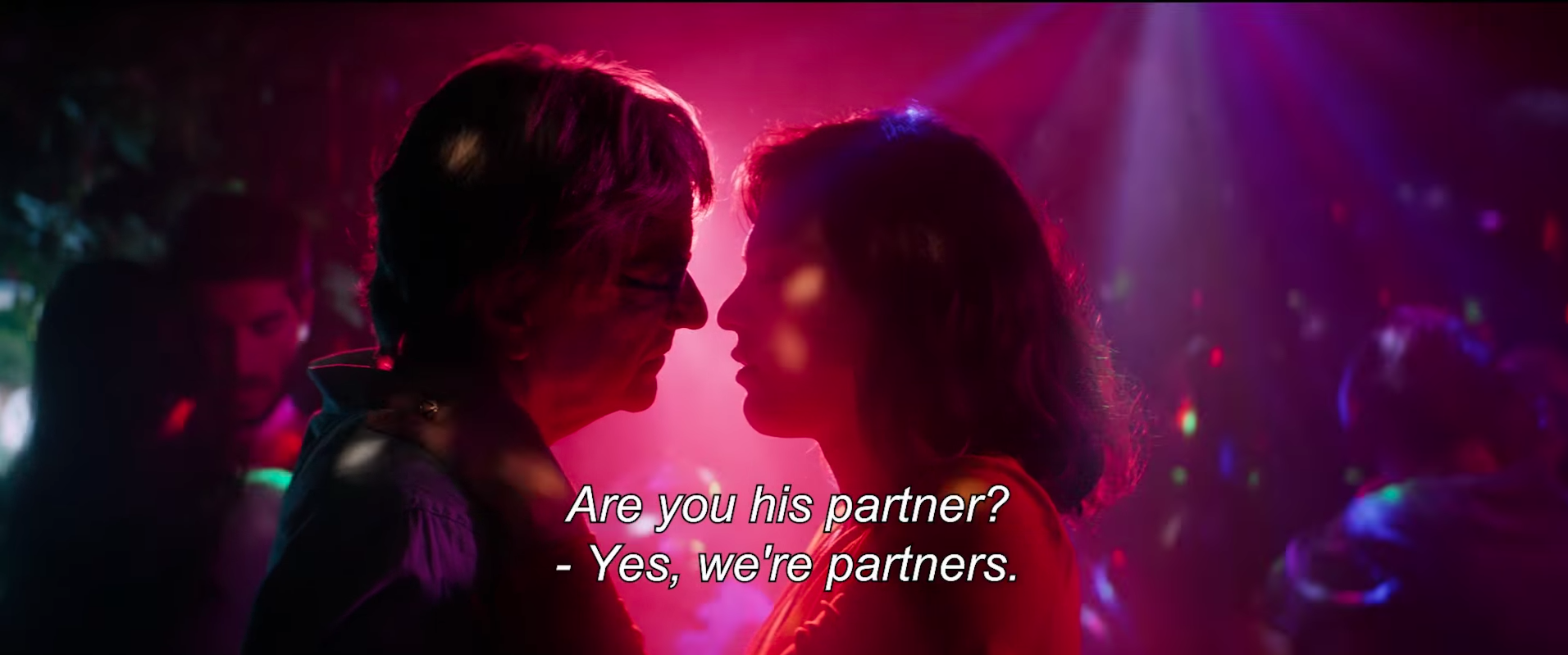It’s a marvel how an actress can elevate a story as emotional and complicated as A Fantastic Woman. In her debut film, Daniela Vega, the first openly transgender actress in Chile, challenges the idea of otherness in the brilliant film.
Vega plays a 27-year-old waitress and aspiring singer, Marina. She is dating Orlando (Francisco Reyes), a man 30 years her senior. Within the first 30 minutes or so, he suffers an aneurysm and dies, leaving Marina to enter a state of mourning and become an open target for her late partner’s family and friends, who spurn Marina primarily because she is transgender.
The opening shot is a gorgeous fade-out of blues and reds, giving off an impression of mystery, and the score — a staccato beat — punctuates the dreamy atmosphere to remind us that what we’re seeing is merely a facade.
And the film is right. Although A Fantastic Woman is not grotesque, it is not for the faint of heart. There is one scene in particular where Marina is gagged by tape, and a rape scene is horrifically anticipated. Thankfully, the scene moves on and Marina, albeit humiliated, is set free.
In scenes like this, Vega shines: where her “womanness” is challenged as both Orlando’s partner and as a human being; and where her otherness is painfully obvious and she must learn how to cope with and fight against it.
There are several shots with nudity in the film, yet they add to the film’s sincerity because they are not sexy — they are not meant to be. Instead, Vega is forced to shed her protective layers — her “woman” layers — and confront the hopefulness (or hopelessness) of her situation and accept herself for who she is. Vega portrays this polarity beautifully, her discomfort apparent but masked in a face of attempted indifference.
While Vega is the obvious superstar in A Fantastic Woman, supporting actors such as Francisco Reyes as the gentle-from-old-age Orlando, Luis Gnecco as Orlando’s bitter son, Gabo, and Aline Kuppenheim as the condescending ex-wife of Orlando, Sonia. You can’t help but hate them due to their utter ignorance toward Marina, but at the same time, you can help but think, “Damn. These actors are great.”
The film cements the growing need to address the underrepresented LBGTQ community. LGBTQ people are constantly discriminated against and abused because they are perceived as “lesser” than the “normal” human being. A lot of this treatment goes unnoticed, and A Fantastic Woman shows this inequality when Marina is forcefully taken hostage. While there were many people around, no one seemed to notice or care that someone was being kidnapped.
Thus, this movie is not just about the death of a loved one. In fact, Orlando — and subsequently, his and Marina’s romance — is the focus of the film’s first quarter. Afterward, Marina is left to deal with the consequences of the stigma of her relationship — both as a transgender woman and as someone significantly younger than her partner.
Despite the plot, the film is neither action-packed nor dialogue-heavy. Rather, it relies on candid and gorgeous shots of city-life in Chile, and a score which is neither haunting or particularly happy. It’s a rather slow, almost sensual movie; a movie of emotional moments punctuated by an otherwise tranquil shots of life: love, denial, anger, frustration and finally, self-realization and empowerment.



